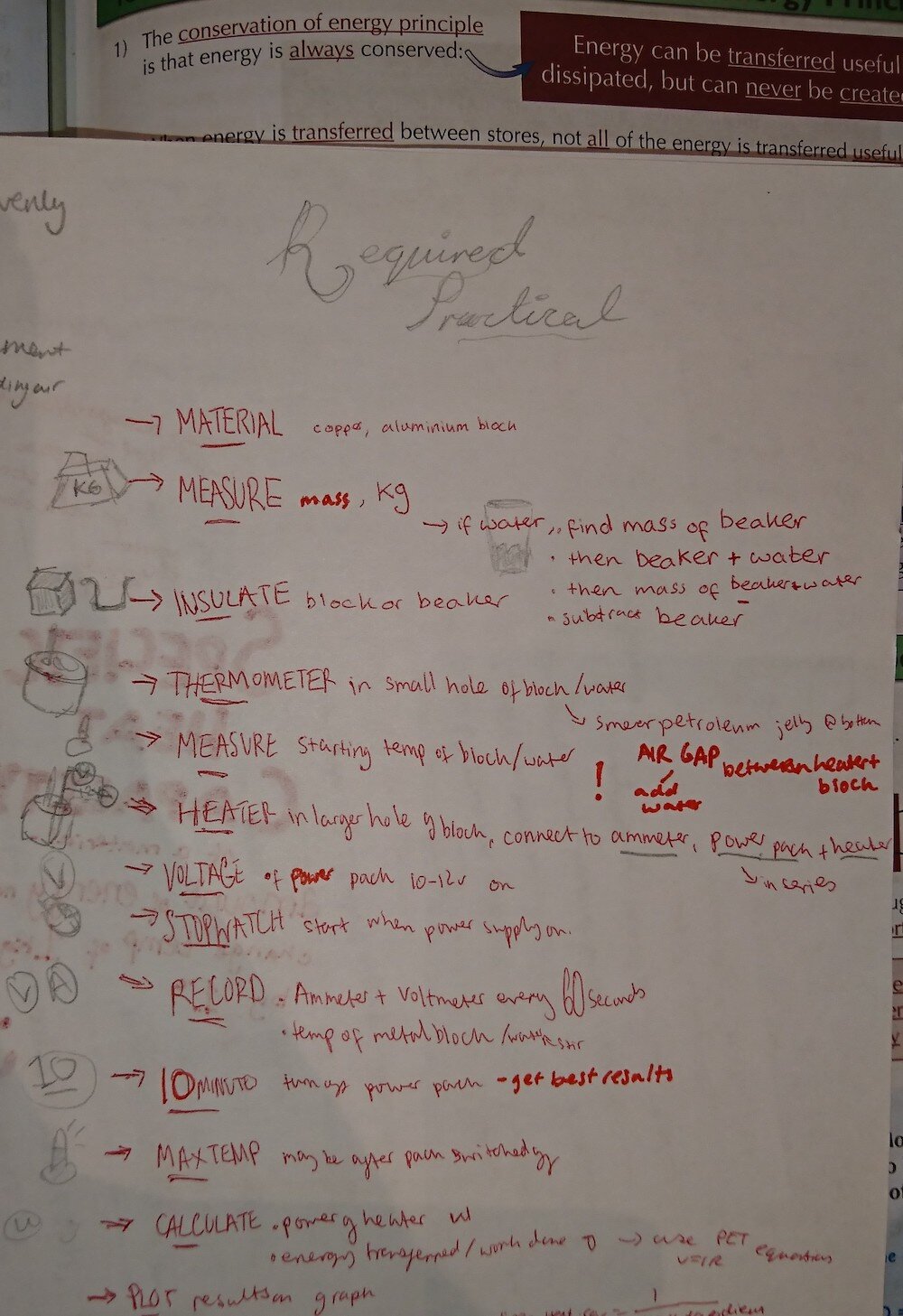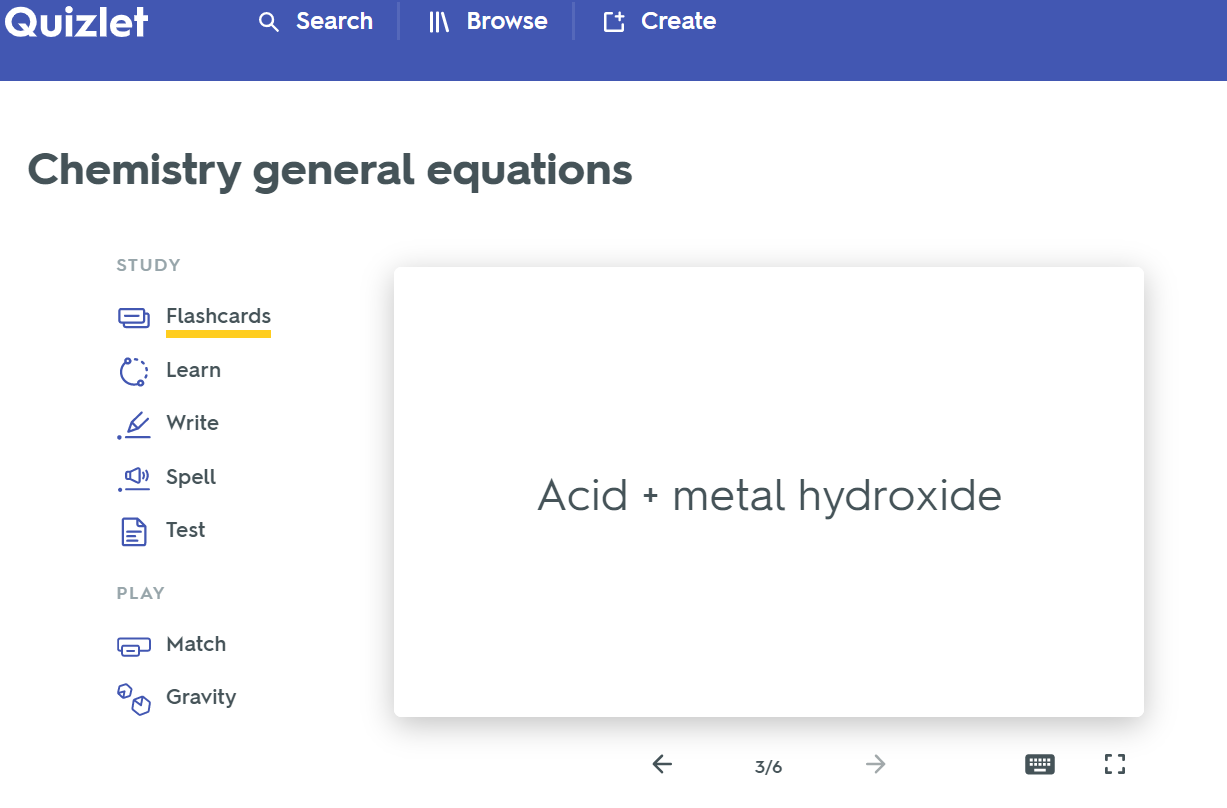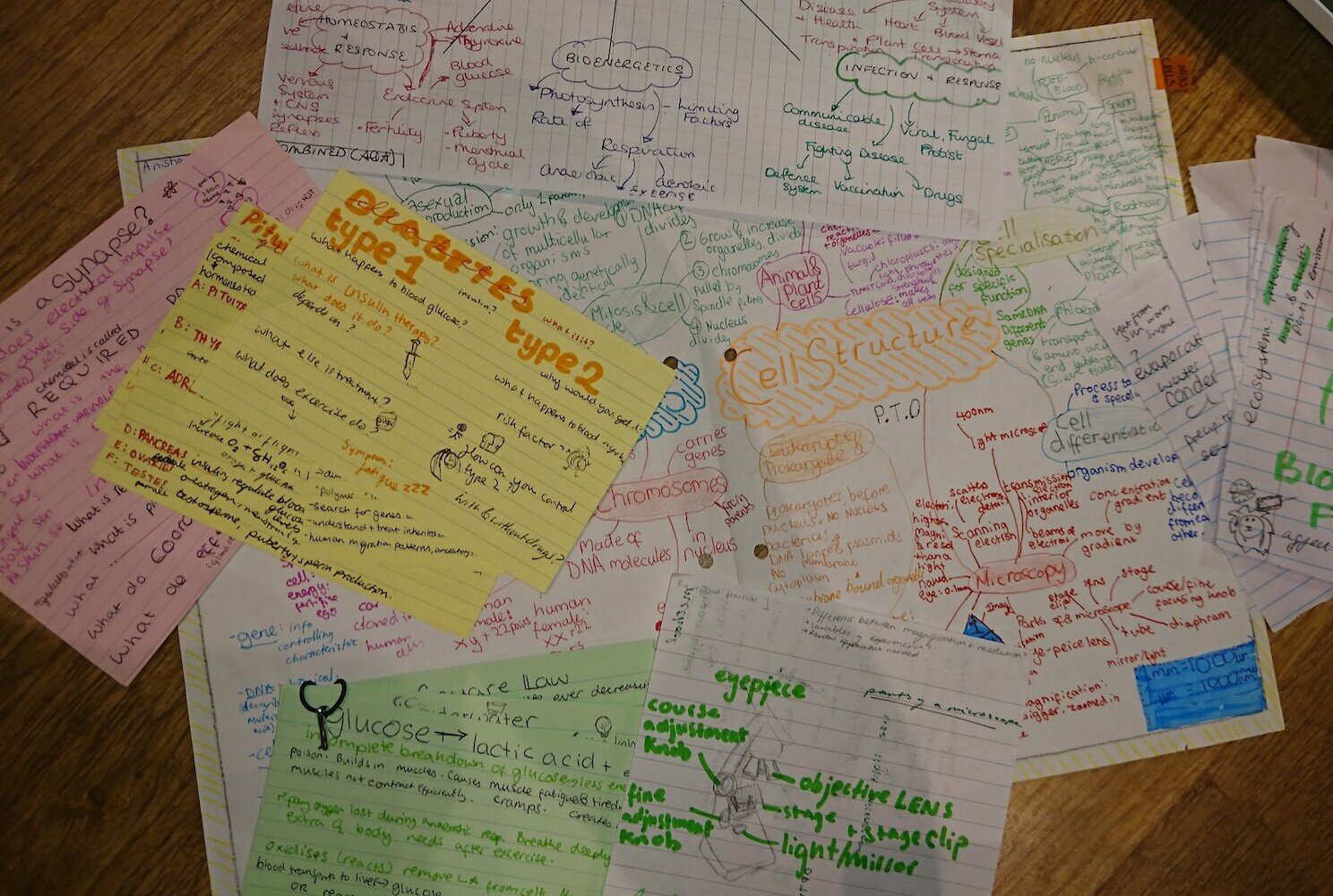My Background
I’ve never found science or maths easy, or particularly enjoyable. In fact, if you told me a year ago I would get a 9 9 in science, I wouldn’t have believed it! I used to get bored easily in chemistry lessons, frustrated in physics and lose concentration in biology. After all, I knew I certainly wouldn’t be doing anything science related beyond GCSE. Science just seemed like learning the content over and over and then writing it onto an exam paper. Luckily, this became a benefit when I started revising (even though it was slightly boring to start with) and it ended up helping me get a good grade. With the right technique, effort and concentration, science revision became much easier. Once I got the hang of revising for science in the right way, my grades started to improve - and science didn’t seem as daunting as before.
The Positives
The good thing about science is how easy it is to organise and separate for revision because of the clear specification. This means that you can easily make a revision timetable which will fit around any extra activities during the weeks leading up to exams. Science is easy to break down into chunks, as each one has different sections and subsections which you can slot into a revision timetable to manage your time effectively. As somebody who likes the learn visually, I used a lot of colours in my notes and diagrams in the flashcards to help me remember everything. I found physics and chemistry require some more application and a bit more concentration to understand the concepts.
Even though biology is the most content heavy science, I found it the easiest, as long as you manage your time well to fit in revision. The hardest part is just sitting down and learning what you need to know. Unfortunately, there is no shortcut to this - however the way in which you learn can help speed things up a bit. For example, knowing which revision methods work best for you, and regularly testing yourself.
My chemistry notes: I used the CGP revision guide and my own notes from lessons to condense the information onto mindmaps and flashcards to revise from.
How I Revised
Especially for science, I found practice papers and questions throughout the year was the most beneficial way to revise. After each topic, I reviewed the content using my own notes/flashcards (sometimes including diagrams) or Seneca Learning (a resource which not only helps you memorise content quickly, but helps you retain information for a long time). I applied this to practice questions, sometimes trying to stick to one mark a minute as I struggled with timing. These are extremely helpful for sciences especially because they:
consolidate the knowledge you’ve already learnt
help practise exam technique
identify which areas you need to work more on
The great thing with practice papers in science is the mark scheme. By the time exam season came around, mark schemes were a saviour.
Most of the questions in the exam papers for science are repeated in a different way but usually require a specific answer. Especially for chemistry, the terminology and wording you use is crucial. For example, mixing up ions and atoms may alter the whole question, the mark schemes help you to learn technical scientific vocabulary. That’s why it’s important, when looking back over past papers, that you learn what you didn’t get right the first time, go back to your lesson notes if needed or ask a teacher to help you understand. This way, you’ll hopefully remember the mistake you made and are less likely to make it again.
The practice papers I found most useful were from the CGP revision guide/workbook, AQA practice papers (these are good practice to do a whole paper after covering the majority of the specification) and Maths Made Easy (great for quickly recapping a topic). Making sure you try to understand the topic when it’s being taught makes it much easier when you are revising for exams as there isn’t as much time to spend on small parts of the specification. However, there were some topics I just never understood (for example, specific latent heat and specific heat capacity in physics). In this case, I looked at the mark scheme for some support and tried to understand what answers the exam board expected to see if I was short on time.
Required practicals are also a huge part of the AQA science specification, and it’s common to get a long written question on them. It’s hard to remember an experiment from a previous lesson, never mind an experiment from a lesson years ago. I found it important to go back over each one when revising. Make sure you know:
the method of each experiment
formulas related to it
Adaptations
variables (independent, dependent, control)
equipment
It took me a long time to memorise each of the methods for every single experiment, but learning the key parts to it came in handy, especially for the high marked questions.
Some of my notes for the required practicals
Learning formulas, units and symbols off by heart is also extremely important in science. Try using Quizlet to type up the formulas you get given during lessons, asking the teachers which ones you have to learn and which you have to recognise. Maths skills are also very important, which is bound to come up in every paper you do, so make sure you know how to convert units, and always show your working out!
I used Quizlet to help me learn formulas and equations
Generally, I found physics the hardest, yet by the end of year 11, after I spent some time familiarising myself with the concepts, it got much easier. Although, it did take quite a bit of reading notes and asking questions to understand). Sometimes watching videos helped, such as from Free Science Lessons and Primrose Kitten (her website also has great resources and practice papers).
On the run up to exam season, I split the trilogy science specification into chunks of biology, chemistry and physics. Within this, I broke it down into different papers, topics and key components inside the topics. Then I made sure to revise a different topic every few days. To make sure I covered the specification in as much detail as I could, I carried out the following process :
recapped the content
used practice questions
corrected my mistakes using the mark scheme.
if necessary, I reviewed the required practical, sometimes visualising the experiment helped me to remember it more clearly
The Exams
For trilogy science, there are six papers in total (two for each science), which seems like lots of exams for somebody who doesn’t particularly enjoy science! Luckily, even if you feel like the other exams didn’t go too well, there are more opportunities to improve. For example, I found my first paper (biology paper 1) didn’t go as well as I expected. The long question at the end - a six marker- combined multiple topics, which was a lot to get through, making timing an issue (especially as I only noticed the question with five minutes left)! Luckily, the GCSE tweets afterwards told me I wasn’t alone. What was the good thing about that being the first paper? I knew that for the next five science exams, I would watch my timing. Sometimes, it can be helpful to do the larger questions first and then answer the rest. Another benefit of doing two exams in each science means you could vaguely predict what has a high chance of coming up in the next paper. For example, if chemistry paper 1 had no required practicals, or lots of maths and equations/ formulas, it is highly likely that a required practical will come up in paper two, and you may need to focus revision on maths questions. This is extremely helpful during exam season when you’re pushed for time and it’s hard to revise with so much detail.
Remember, whether you enjoy science or not, you can still get a good grade. Make sure to revise in the right way for you, leaving enough time for recap crucial topics likely to come up and be worth a lot of marks. Once you have found a technique that helps you retain all the scientific knowledge you need to know, and practise applying it to questions, you’ll be surprised with how much easier science becomes!
Some biology notes, this includes a mindmap of key parts from the specification, I made this to make sure I had covered everything. I also used flashcards with diagrams to help with my memory. I also tested myself on recalling a required practical equipment diagram for microscopy (flashcard) as well as the information for topic 1 (mindmap).






